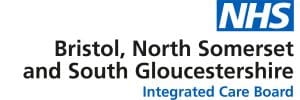Access to COVID-19 treatment
Eligible people will be able to access treatments to help manage COVID-19 symptoms and reduce the risk of becoming seriously ill, through a local Covid Medicine Delivery Unit service.
Who may be able to have a COVID-19 treatment?
You may be eligible for COVID-19 treatments if all of the following apply:
- You are at highest risk of getting seriously ill from COVID-19
- You have symptoms of COVID-19 within the last five days and showing no signs of improvement.
- You have tested positive for COVID-19.
A healthcare professional will assess for suitability of treatment.
More information about eligible conditions – NHS UK
COVID-19 Lateral Flow tests
Patients eligible for treatment are also eligible for free COVID-19 lateral flow tests, which can be collected from a community pharmacy. Patients can also use tests purchased from a pharmacy or shop.
Find a community pharmacy that offers free lateral flow tests – NHS.UK
How to get COVID-19 treatment
If you’re eligible for treatment, you will need to follow the process below:
- You should keep lateral flow tests at home, but only use them if you get symptoms.
- If you are experiencing symptoms of COVID-19, you should take a test.
- If you test positive, you can access treatment via your GP practice so that they can consider referring you for an assessment. Outside of GP opening times, you can contact NHS 111 for a referral. If you are unable to reach your local GP, you can contact your hospital specialist, if you have one.
What are the treatments?
Treatments include neutralising monoclonal antibody (nMAB) or antiviral treatments.
Some treatments come as capsules or tablets that you swallow. Others are given to you through a drip in your arm (infusion), in a GP practice.
Read more information about treatments for COVID-19 – NHS.UK

